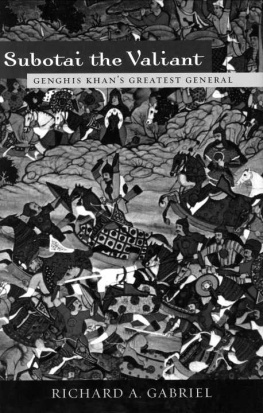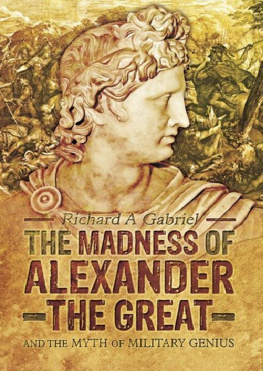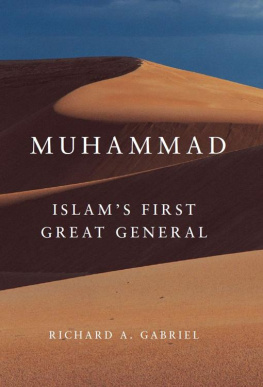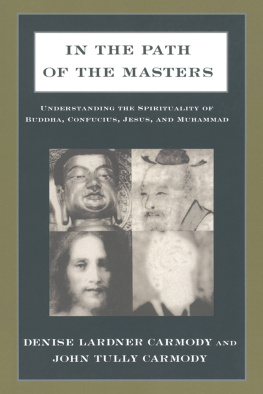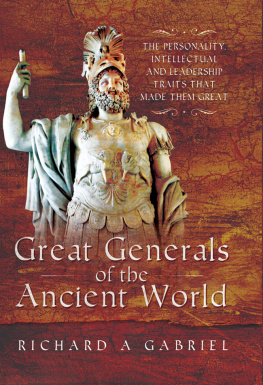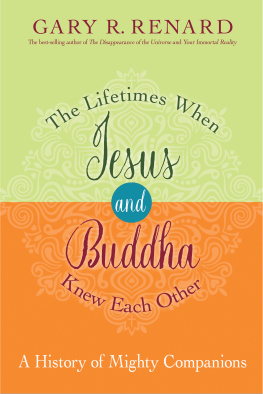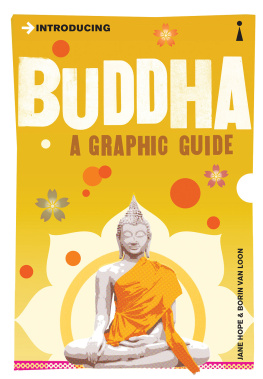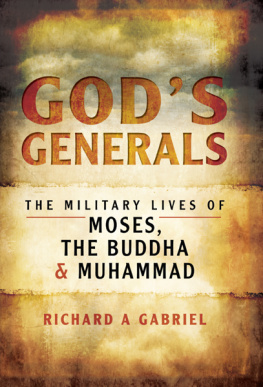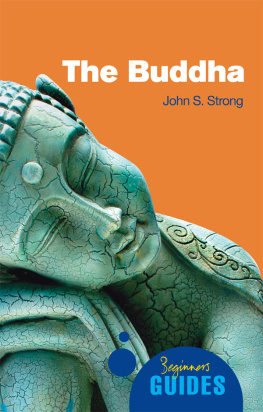Contents
Guide
Pagebreaks of the print version
- i
- ii
- viii
Other Books By Richard A. Gabriel
The Madness of Alexander the Great (2015)
Between Flesh and Steel: Military Medicine From The Middle Ages to the War in Afghanistan (2013)
Man and Wound in the Ancient World (2012)
Hannibal: The Military Biography of Romes Greatest Enemy (2011)
Philip II of Macedonia: Greater Than Alexander (2010)
Thutmose III: Egypts Greatest Warrior King (2009)
Scipio Africanus: Romes Greatest General (2008)
Muhammad: Islams First Great General (2007)
The Warriors Way: A Treatise on Military Ethics (2006)
Soldiers Lives: Military Life and War in Antiquity: 4,000 B.C.E. to 1453 C.E. (2006)
Jesus The Egyptian: The Origins of Christanity and the Psychology of Christ (2005)
Ancient Empires at War, 3 vols. (2005)
Subotai The Valiant: Genghis Khans Greatest General (2004)
Lion of the Sun (2003)
The Military History of Ancient Israel (2003)
Great Armies of Antiquity (2002)
Sebastians Cross (2002)
Gods Of Our Fathers: The Memory of Egypt in Judaism and Christianity (2001)
Warrior Pharaoh (2001)
Great Captains of Antiquity (2000)
Great Battles of Antiquity (1994)
A Short History of War: Evolution of Warfare and Weapons (1994)
History of Military Medicine: Ancient Times to the Middle Ages (1992)
History of Military Medicine: Renaissance to the Present (1992)
From Sumer To Rome: The Military Capabilities of Ancient Armies (1991)
The Culture of War: Invention and Early Development (1990)
The Painful Field: Psychiatric Dimensions of Modern War (1988)
No More Heroes: Madness and Psychiatry in War (1987)
The Last Centurion (French, 1987)
Military Psychiatry: A Comparative Perspective (1986)
Soviet Military Psychiatry (1986)
Military Incompetence: Why The US Military Doesnt Win (1985)
Operation Peace For Galilee: The Israeli-PLO War in Lebanon (1985)
The Antagonists: An Assessment of the Soviet and American Soldier (1984)
The Mind of the Soviet Fighting Man (1984)
Fighting Armies: NATO and the Warsaw Pact (1983)
Fighting Armies: Antagonists of the Middle East (1983)
Fighting Armies: Armies of the Third World (1983)
To Serve With Honor: A Treatise on Military Ethics (1982)
The New Red Legions: An Attitudinal Portrait of the Soviet Soldier (1980)
The New Red Legions: A Survey Data Sourcebook (1980)
Managers and Gladiators: Directions of Change in the Army (1978)
Crisis in Command: Mismanagement in the Army (1978)
Ethnic Groups in America (1978)
Program Evaluation: A Social Science Approach (1978)
The Ethnic Factor in the Urban Polity (1973)
The Environment: Critical Factors in Strategy Development (1973)
First published in Great Britain in 2016 by
Pen & Sword Military
An imprint of
Pen & Sword Books Ltd
47 Church Street
Barnsley
South Yorkshire
S70 2AS
Copyright Richard A. Gabriel, 2016
HB ISBN 978 1 47385 904 3
TPB ISBN 978 1 47389 809 7
PDF ISBN 978 1 47385 907 4
EPUB ISBN 978 1 47385 906 7
PRC ISBN 978 1 47385 905 0
The right of Richard A. Gabriel to be identified as Author of this work has been asserted by him in accordance with the Copyright, Designs and Patents Act 1988.
A CIP catalogue record for this book is available from the British Library.
All rights reserved. No part of this book may be reproduced or transmitted in any form or by any means, electronic or mechanical including photocopying, recording or by any information storage and retrieval system, without permission from the Publisher in writing.
Typeset in Palatino by
Replika Press Pvt Ltd, India
Printed and bound in England
By CPI Group (UK) Ltd, Croydon, CR0 4YY
Pen & Sword Books Ltd incorporates the Imprints of Pen & Sword Aviation, Pen & Sword Family History, Pen & Sword Maritime, Pen & Sword Military, Pen & Sword Discovery, Pen & Sword Politics, Pen & Sword Atlas, Pen & Sword Archaeology, Wharncliffe Local History, Wharncliffe True Crime, Wharncliffe Transport, Pen & Sword Select, Pen & Sword Military Classics, Leo Cooper, The Praetorian Press, Claymore Press, Remember When, Seaforth Publishing and Frontline Publishing.
For a complete list of Pen & Sword titles please contact
PEN & SWORD BOOKS LIMITED
47 Church Street, Barnsley, South Yorkshire, S70 2AS, England
E-mail:
Website: www.pen-and-sword.co.uk
Contents
List of Figures and Maps
Figures
Maps
In Memoriam
Jacqueline Brandt Weingartner
1922-2015
Sunt lacrimae rerum et mentem
mortalia tangunt
These are the tears of things and
our mortality cuts to the heart
------ Aeneas
And For My Beloved Susan
Whose Smile Entices and Eyes Beguile
Introduction
I t is one of the more interesting curiosities of military history that the founders of three of the four great religions Judaism, Buddhism, and Islam were also accomplished field generals with extensive experience in commanding men in battle. Moses, the founder of Judaism, commanded a tribal army that sacked an Egyptian supply depot, outmanoeuvred the Egyptians in a desert campaign, fought the Amelekites to a draw near Rephidim, created and trained the first Israelite national army at Sinai, defeated the Ammonites on the plain of Jahaz, destroyed fortified cities in the Jordan Valley, and left his successor, Joshua, a large, well-equipped, and professionally led army with which to attack Canaan. Muhammad, the founder of Islam, was a soldier too. In a single decade, he fought eight major battles, led eighteen raids, and planned thirty-eight military operations. He was wounded twice, and twice had his positions overrun before rallying his troops to victory. Muhammad was also a military theorist, organizational reformer, strategic thinker, operational level combat commander, revolutionary, the inventor of the theory of insurgency and historys first successful practitioner of it. Siddhartha Gautama, the Buddha, and founder of Buddhism, was the son of an Aryan warrior chief and trained soldier who witnessed so much battlefield carnage that he suffered a psychological collapse. The experience of war was central to the lives of these three great men.
If the experiences of these men in war had not been significant, it is possible that their achievements as religious leaders might never have occurred. For all three generals, war and religion were so closely intertwined in their personalities that it is difficult to discern where the influence of one ended and the other began. This book attempts to do just that, and explores the military experiences of Moses, the Buddha, and Muhammad, and the role their war experiences played in their lives.
It is always difficult to be objective about the life of the founder of a religion. His personality and the events of his life are blurred by an aura of the miraculous, enhanced almost inevitably by the needs of his followers to believe. The earliest biographers, those closest to his lifetime, are often preoccupied not with historical fact as much as with glorifying in every way the memory of one they believe to have been the Messenger of God or even God himself. The result is a rich accretion of myth and miracle, mysterious portents and heavenly signs, of residues from other religions and traditions. The biographies of saviours and messiahs cannot usually pass as history. They are rather the propaganda of an expanding faith. It is the task of the historian to locate and explicate the truth that lies behind the myth. At the root of the effort rests the historians faith that the task can be accomplished at all.


